9 Pro Tips to Track Your Lost Luggage With AirTags

If you’re flying this summer or heading into the busy fall travel season, one essential you won’t want to forget is a luggage tracker. In fact, travel pros say Apple AirTags have become the ultimate hack for avoiding travel disasters and lost baggage, especially as airlines continue to deal with staffing shortages, delays, and increased lost items reports.
Whether you’re a frequent flyer or planning your first big trip in years, here are the top expert-recommended tips for using AirTags to track your luggage, speed up recovery, and travel with confidence.
RELATED: The #1 Thing to Do Before Checking Your Luggage (Spoiler: It Could Save You $1000s)
1
Pick the right tracker for you.
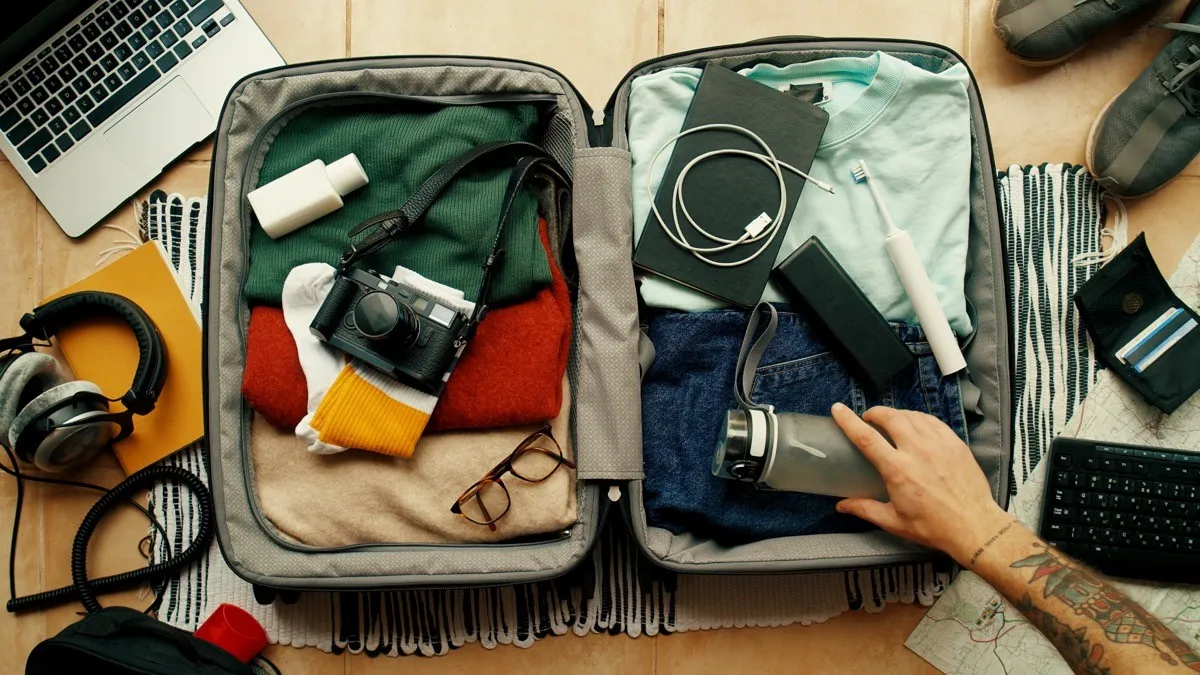
While it’s super-popular, Apple’s AirTag isn’t the only option on the market for travelers who want to keep an eye on their bags.
There are also options for those with Android phones, including Tile and Samsung trackers, that might be better suited for your needs. Some can even be recharged.
Usually, the type of smartphone you have will dictate the best option for you.
2
Track your bags before they’re even missing.
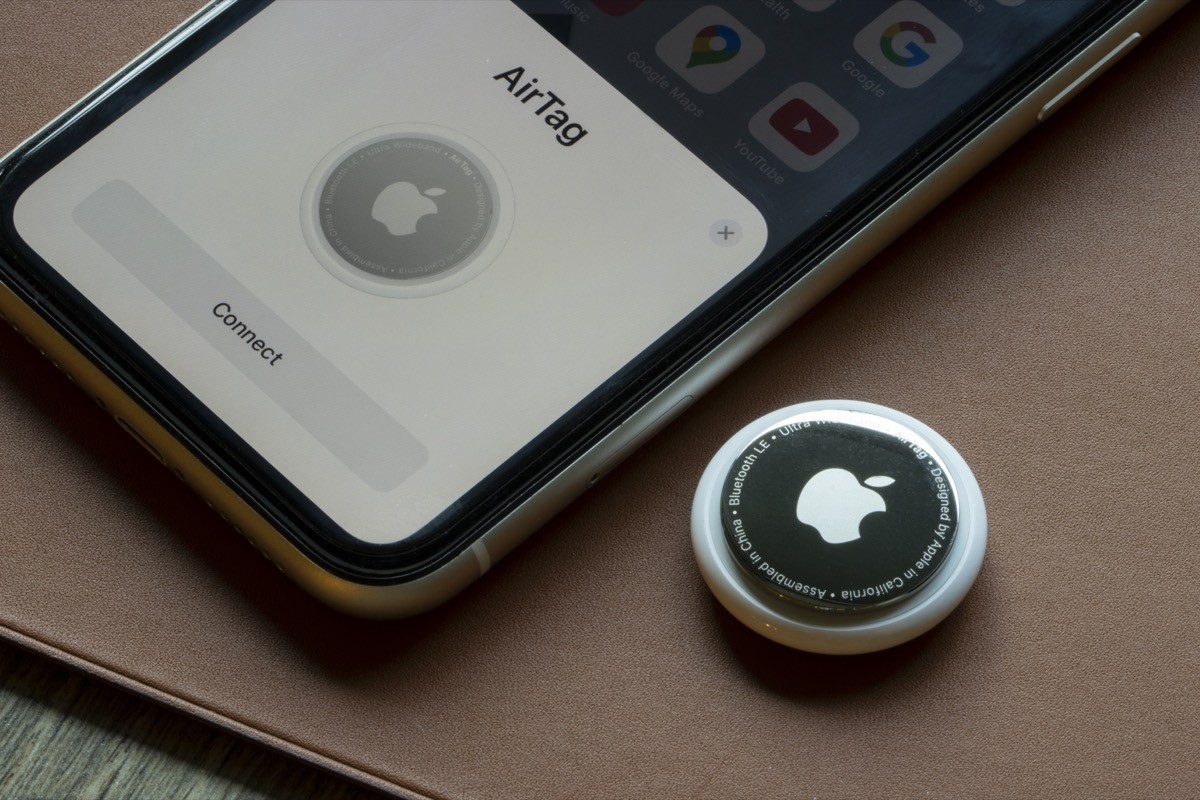
Once a tracker is activated, it will regularly beam their location to your phone. This means you’ll always have tabs on it—even before something goes wrong. In a discussion on the r/TravelHacks subreddit, many frequent flyers vouched for these gadgets’ effectiveness, saying AirTags and the like regularly check on the status of their luggage while en route.
“I always plan for carry-on, but have been forced to gate check more than once,” one user wrote. “Sometimes it takes a while for the AirTag to update, but by the time I’m walking to a connecting gate or to baggage claim, I can tell that my bag made it to the same airport as me.”
In some cases, knowing where your mishandled bags are can actually help salvage the rest of your trip.
“Air Tags helped me know what action I needed to take when my luggage wasn’t on the carousel in Madrid,” another Redditor wrote. “The Air Tags showed the bag was still in Paris, so I knew (1) I might as well leave the airport and enjoy myself, (2) it hadn’t been taken accidentally by another passenger, and (3) I was gonna need a toothbrush and some deodorant, but probably didn’t need to go buy new clothes (and I was right—it came the next day).”
3
Don’t attach them to the outside of your luggage.
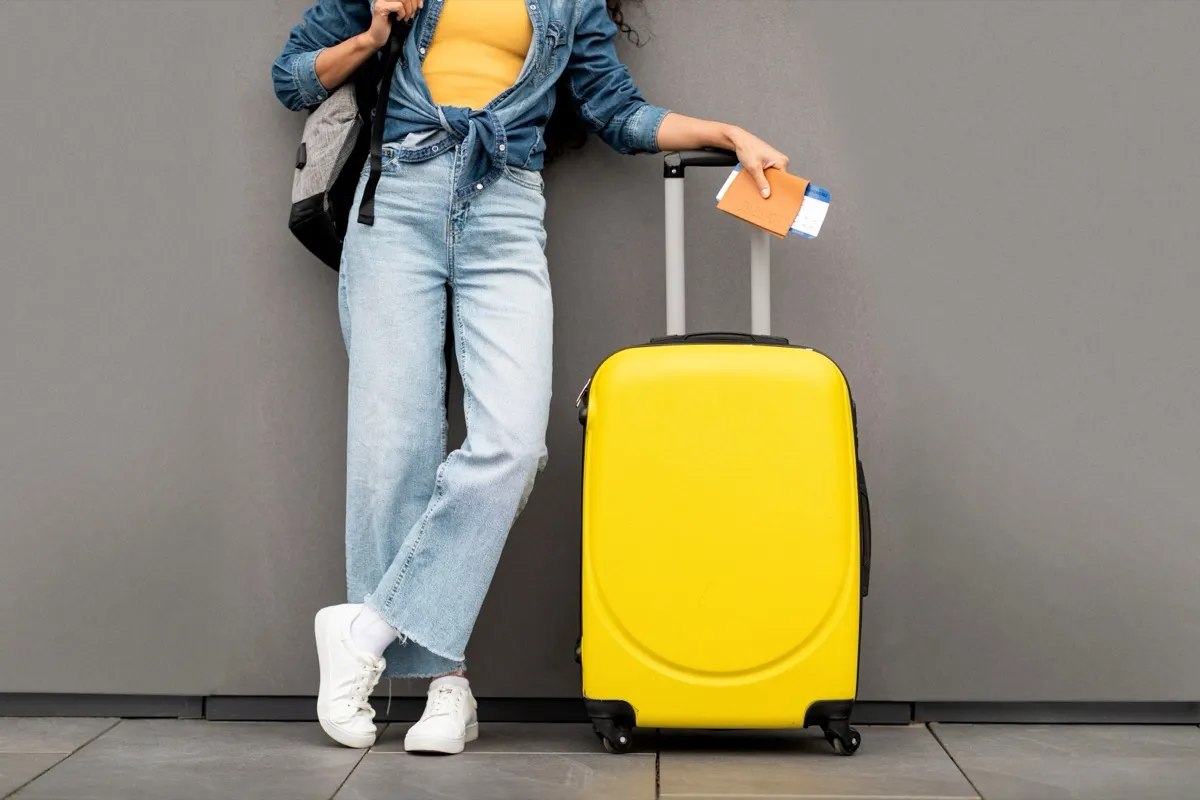
AirTags and other trackers are really tiny, which makes them easy to stash practically anywhere that’s convenient. However, in another discussion on the r/TravelHacks subreddit, one traveler says it’s vital to keep them inside your luggage.
“I wouldn’t recommend using a keychain attachment on the outside,” they warn. “Keychains won’t stop bags from being stolen. Thieves will just take them off and toss them in the trash if they know they’re there,” which includes travel totes like crossbody bags, purses, and day packs.
RELATED: How to Deal With Lost Luggage: A Step-by-Step Guide
4
Use a secure pocket to hide your AirTag.
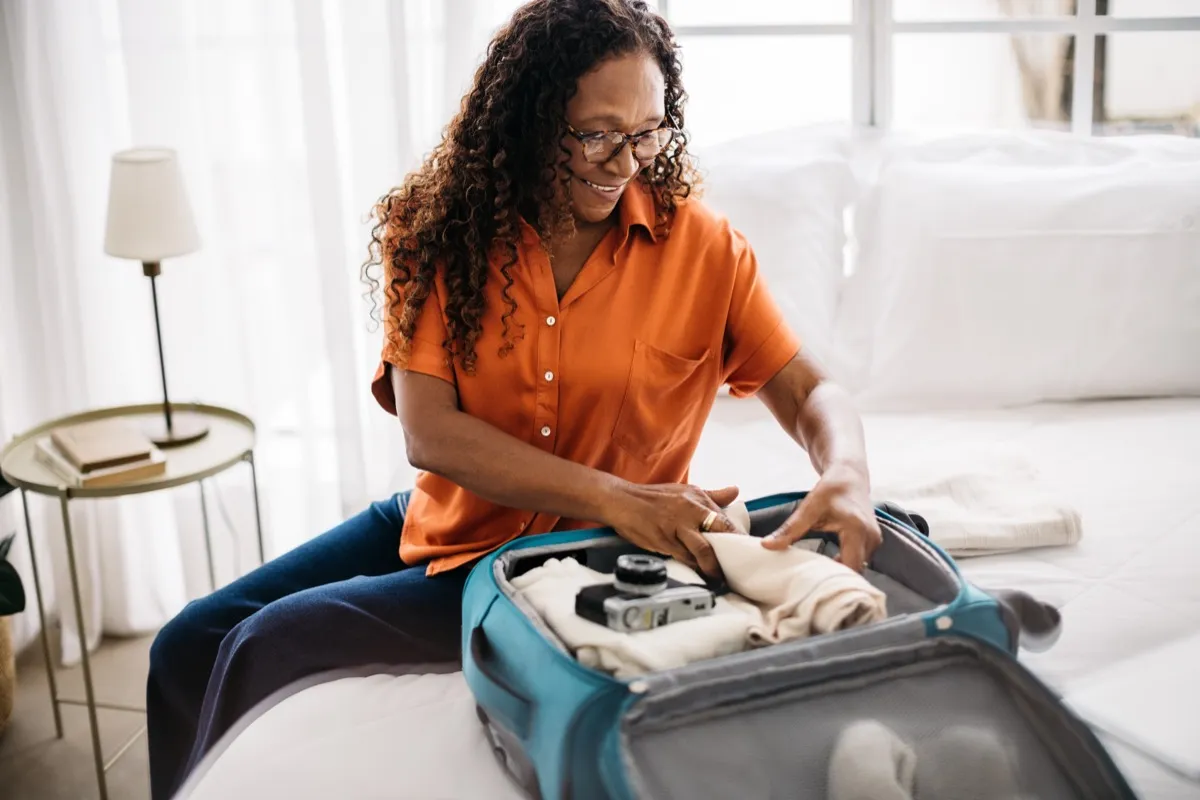
While you want your tracker inside the bag, don’t just toss it in loosely. Instead, secure it in a zipped inner pocket.
That way, if you store your luggage for a few weeks or months until your next trip, you’ll know exactly where your tracker is when it’s time to jetset again.
5
Don’t forget your carry-ons and totes.
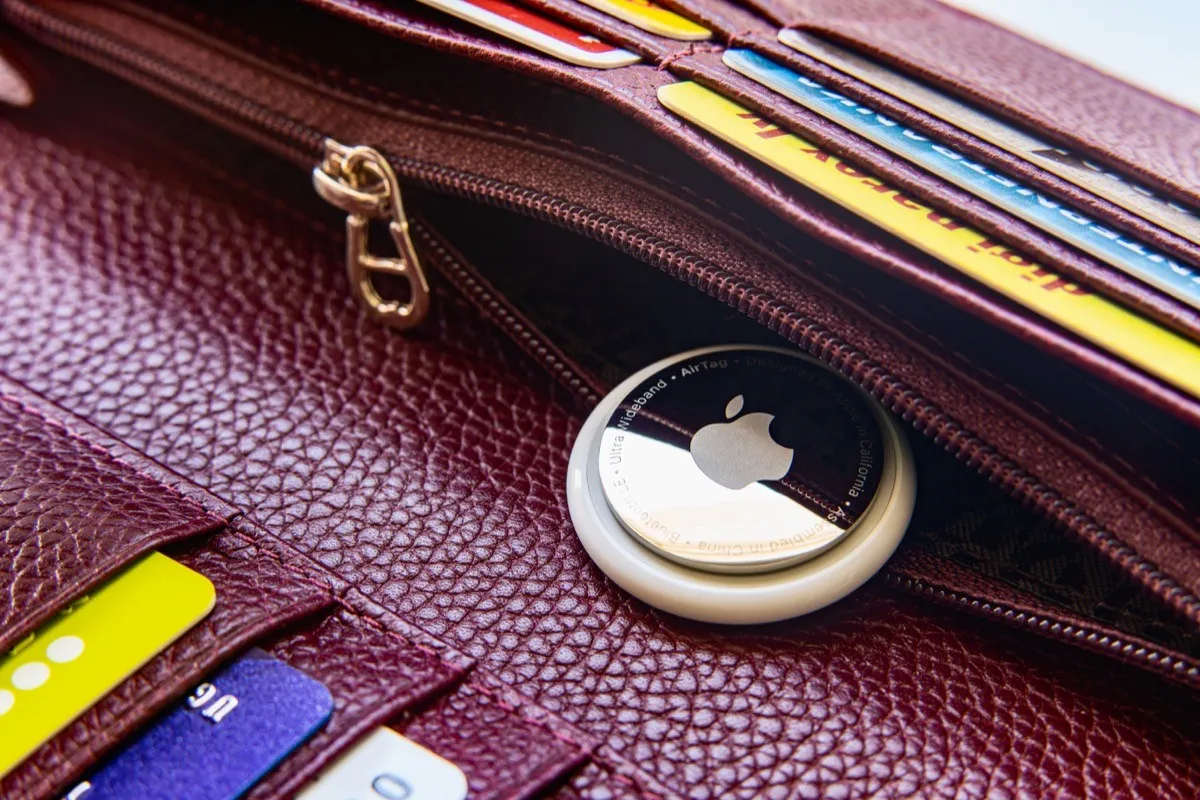
Unfortunately, it’s not just your checked luggage that can go missing when traveling. AirTags can be vital for relocating carry-on bags, purses, backpacks, and more that might also suddenly disappear.
One Reddit user says this is why they have Air Tags on all the items they take with them on trips. “Once somebody took my carry-on, I was notified when it was away from me, and I was able to retrieve it,” they wrote.
RELATED: 4 Major United Airlines Changes, and How They’ll Affect Travelers
6
Add your contact info to your AirTag.

Adding your name, email, or phone number to the AirTag’s settings means whoever finds your luggage can use their phone to get your contact info—without accessing your personal data.
Many travelers don’t realize you can make your AirTag’s ‘Lost Mode’ message something helpful, like “If found, please call/text me at [your number],” experts say.
Just go to the Find My app, tap the AirTag, and enable Lost Mode to customize.
7
Be sure to maintain the device.

For better or worse, most Apple products typically require a daily recharge to stay working. However, AirTags don’t have the same capability and need a little more attention. That means you’ll have to physically swap out the batteries on the trackers roughly once a year, depending on how frequently you use the trackers and the quality of batteries you use, Wired reports.
Fortunately, you won’t have to guess when it’s time for a replacement: The trackers will alert you whenever batteries start running low on juice, hopefully giving you enough time to swap them out before your next trip.
8
Work with your airline to find your tracker.
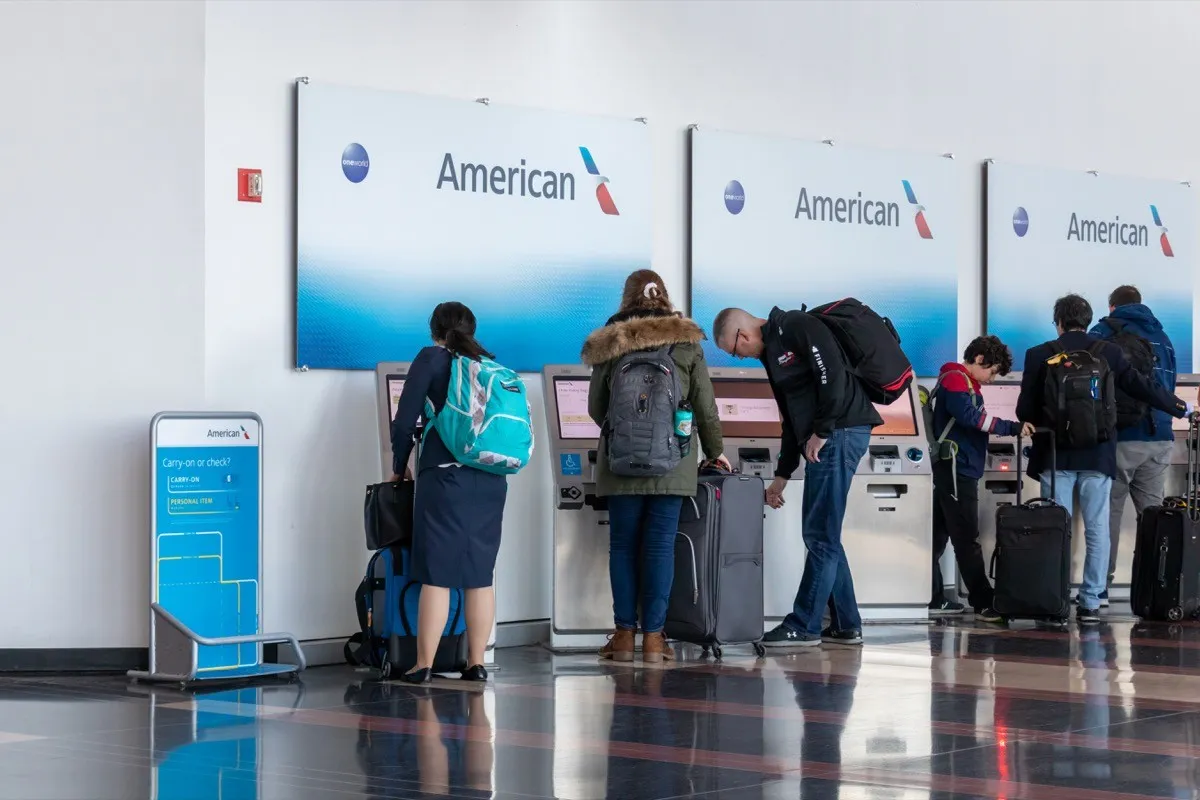
In November 2024, over 15 major airline carriers announced they would “begin accepting Find My item locations as part of their customer service process for locating mishandled or delayed bags,” according to Apple.
“Find My is an essential tool for users around the world to keep track of and find their belongings,” Eddy Cue, senior vice president of services at Apple, said at the time. “The Find My network and AirTag have proven to be a powerful combination for users while traveling, providing invaluable location information when bags have been misplaced or mishandled. With Share Item Location, we’re excited to give users a new way to easily share this information directly with third parties like airlines, all while protecting their privacy.”
Participating airlines include Aer Lingus, Air Canada, Air New Zealand, Austrian Airlines, British Airways, Brussels Airlines, Delta Air Lines, Eurowings, Iberia, KLM Royal Dutch Airlines, Lufthansa, Qantas, Singapore Airlines, Swiss International Air Lines, Turkish Airlines, United, Virgin Atlantic, and Vueling, and more.
RELATED: Saying These Two Secret Words Will Get You an Instant Airline Upgrade
9
Use a lost bag service or insurance.
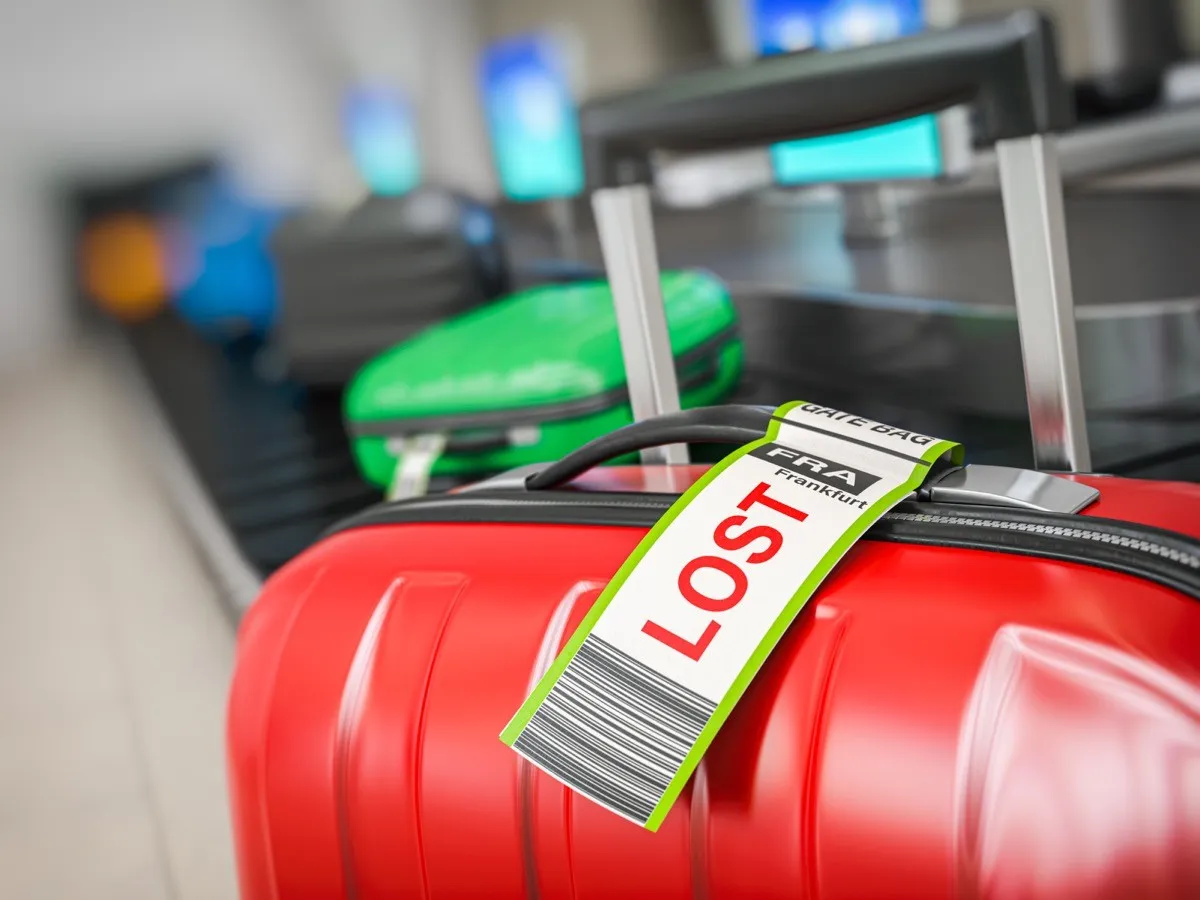
Sometimes, even knowing precisely where your bag is won’t be enough to get it back quickly. And when airlines continually drop the ball on logistics, that’s when a lost bag concierge service can come in handy.
Companies like Blue Ribbon Bags specialize in dealing with the higher-ups at airlines to help reunite travelers with their lost luggage. Being able to hand over your suitcases’ location can help the company expedite delivery even faster, NerdWallet reports.
And if you’ve opted to pay for insurance ahead of time, you can similarly use information from your AirTag to streamline the process with the insurance company’s help.
Otherwise, knowing where your bags are can still be helpful when communicating directly with the airlines. Just be sure to try and connect with a human customer service representative and not an automated system you’ll often find built into an airline’s app, NerdWallet suggests.